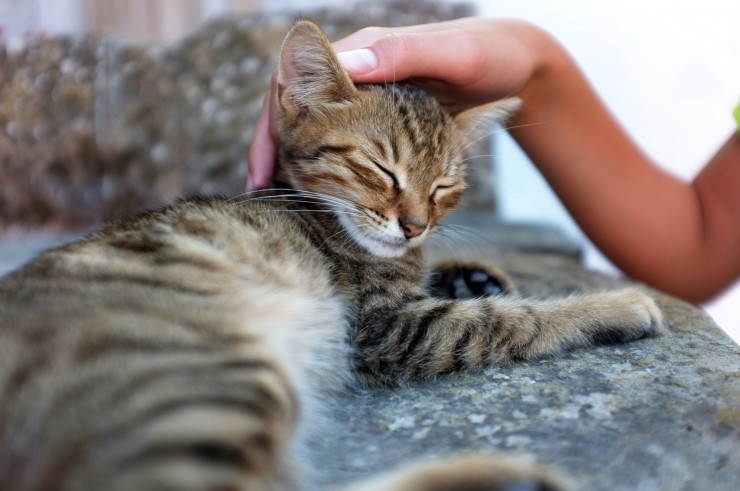

While we usually think of dogs as the animals with the most acute sense of smell, cats too communicate via scent a lot more than we usually think they do, and scent and smell is very important to cats, who like to ensure that everything around them is just so, and smells of them, ideally!
In this article we will look at six of the core methods that cats use to communicate via scent, and the important of these things when it comes to keeping your household a happy place for your cats, and interacting with them in the right ways. Read on to learn more.
First of all, the vast majority of cats are very finicky about their toilet habits, and some cats will spend around ten minutes in and around the litter tray scrupulously covering their waste! This is in order to mask the scent of their waste so that it does not become a beacon for predators, or earn them the ire of another cat that shares the same territory.
However, some cats will not even attempt to cover their waste at all, and many cat owners assume that this is simply because the cat never learned to so this-but in fact, a cat that leaves their waste uncovered is more likely to do so because they see themselves as the boss cat, either to the other cats in the area or in the household in general! Ergo, in their position at the top of the totem pole, they see no reason to mask their scent, and in fact, may use it to show their position to others-feline or human!
Spraying urine is of course one of the most annoying and potentially problematic problems a cat can display, and it is one of the most heavily laden in terms of meaning. A cat spraying may be to assert dominance and ownership of a place, or due to feelings of insecurity, or to show a readiness to breed. While spraying urine is usually associated with unneutered males, both neutered males and female cats may exhibit this behaviour too.
Cats have pheromone glands on the sides of their faces, just behind their mouths, and they use these glands to transfer their scent onto the things around them, to mark them out as theirs and take ownership of it. The smell of themselves is very reassuring to your cat, and they will like to spread their scent onto others too-this is why your cat might like to rub the side of their face onto your hands, and why swapping blankets of two different cats prior to their first introduction can help to make things easier, as the scent therefore will not be alien to each of them.
When cats wind around your legs and rub their bodies against you, they may well be trying to point out that it is dinnertime, although sometimes, it can seem as if they are deliberately trying to trip you up!
The former explanation may be true, but another element of it is that once more, your cat is trying to transfer their scent to you, and as feeding time is often in the mornings when you are getting ready for your day and may have showered, put on clean clothes and otherwise masked your cat’s scent, this behaviour can often be confused with a polite reminder to fill the bowl!
Everyone knows that cats are fastidious about their personal hygiene, and will often spend large portions of their days grooming themselves from head to toe with great precision! You may also have noticed that your cat will usually groom themselves straight after you have petted them as well, but what you may not be aware of is that they are doing this to remove the scent that you have left on them, and replace it with their own scent once again!
When two cats meet each other, when a cat meets a new person or if you greet your cat after being away for a bit, you will probably have noticed that out of choice, your cat will extend their head and delicately sniff the other cat or person before deciding if they want to say hello.
This initial first sniff is often how cats that share a household greet each other when one of them has been outside, as a lot of information can be transferred and decoded by cats in this way, allowing them to assess the situation, and decide how they feel about it. A head-on approach that does not give your cat time to decide about things will usually be viewed poorly, and as bad etiquette on the part of yourself!
Copyright © 2005-2016 Pet Information All Rights Reserved
Contact us: www162date@outlook.com